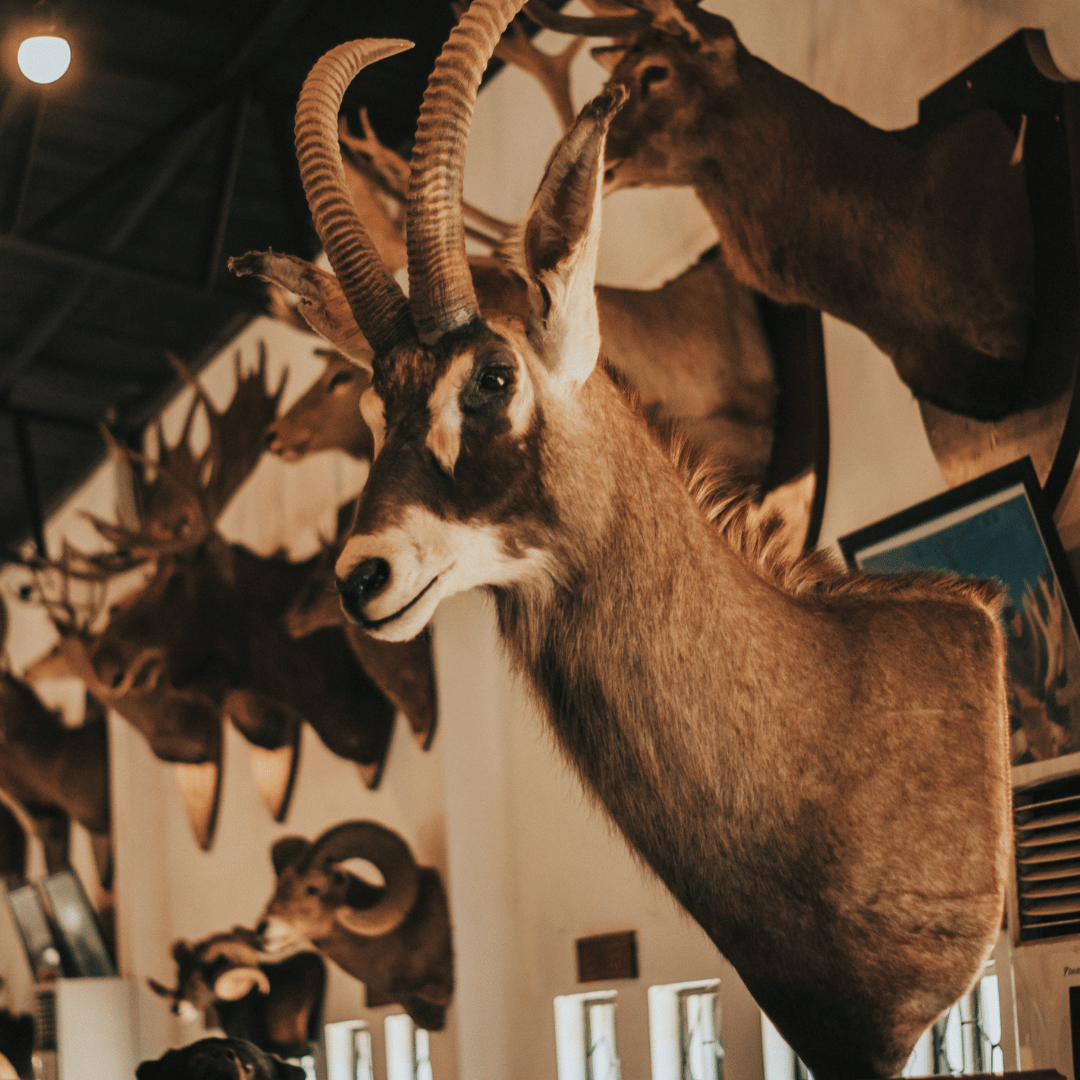Trophy import bans have become a heated topic in US politics, sparking debates that go beyond hunting. These restrictions, aimed at limiting the import of animal trophies from game hunting safaris, raise questions about conservation, ethics, and international relations. As more states and federal lawmakers weigh in, the conversation continues to grow.
For those involved in or curious about game hunting safaris, understanding how these bans impact hunting practices and wildlife management is crucial. The issue isn’t just about politics; it ties into broader discussions on environmental sustainability and the role of hunters in conservation efforts.
[DYNAMIC-BLOGTABLEOFCONTENT]
Key Takeaways
- Trophy Import Bans and US Politics: These bans spark debates about wildlife conservation, ethics, and international relations, influencing environmental and political discourse in the US.
- Impact on Conservation: Regulated game hunting contributes to funding anti-poaching initiatives, protecting habitats, and supporting local economies across Africa.
- Ethical Hunting Practices: Responsible hunting prioritizes species preservation by targeting non-breeding or older animals, ensuring ecological balance and sustainability.
- Planning Your Safari: Selecting the right destination, timing, and gear is critical for a successful and ethical hunting trip. Trusted operators help hunters navigate regulations and conservation guidelines.
- Economic Benefits: Hunting tourism supports rural communities through job creation and funding for education and infrastructure.
- The Role of Hunters in Conservation: Hunters play an essential role in wildlife management and environmental sustainability, particularly when adhering to strict regulations and ethical practices.
Game hunting safaris offer a thrilling experience, combining skill, adventure, and an opportunity to contribute to conservation efforts. For enthusiasts, exploring the vast landscapes of Africa while pursuing iconic species is an unparalleled journey. Let’s talk about the essentials, from planning your African hunting safari to the conservation impact of these excursions.
Understanding Trophy Import Bans
Safari hunting stands as a unique activity that blends cultural tradition with modern conservation strategies. By participating, hunters often support wildlife management programs and habitats.
The Big 5 of African Game
The term “Big 5” refers to Africa’s most sought-after and challenging animals to hunt: lions, leopards, rhinoceroses, elephants, and Cape buffalo. Each presents its own challenges. For instance, Cape buffalo hunts demand strategic stalking due to the animal’s strength and unpredictability.
Lion hunting in Africa is another highlight but requires adherence to strict ethical and legal guidelines. These hunts often fund local anti-poaching efforts and support nearby communities.
How Safari Hunting Supports Conservation
Organized African hunting safaris contribute significantly to conservation. Fees from hunting permits and licenses are funneled into habitat preservation and anti-poaching initiatives.
Local economies also benefit. For example, communities rely on income from African hunting safaris for employment and education improvements. Unlike illegal poaching, regulated hunting creates sustainable ecosystems.
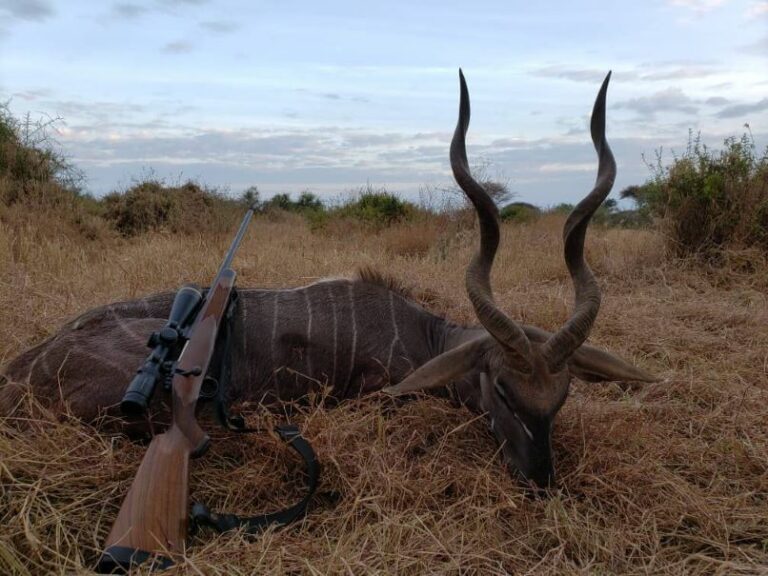
Start Your Adventure Today
If you’re ready to embark on an unforgettable African hunting safari, select a trusted broker who understands your goals. Look for operators offering ethical, regulated hunting packages that promote conservation and community benefits. Interested? Begin exploring options through Game Hunting Safaris.
Game hunting safaris offer a unique blend of adventure, skill, and contribution to wildlife conservation. For those who seek the thrill of tracking majestic animals in their natural habitat, African safaris provide the ultimate experience. Whether you’re planning your first hunt or looking to explore new destinations, gaining the right insights can make all the difference. Let’s break it down step by step.
Understanding Ethical Hunting Practices
Responsible hunting contributes to conservation through habitat preservation, anti-poaching programs, and funding local communities. Ethical hunters:
- Target only designated species within legal limits.
- Avoid hunting animals with dependent offspring.
- Work with guides to ensure humane practices.
This approach not only maintains balance in ecosystems but also reinforces the role of hunters as conservation allies.
Highlighting Iconic Species
African game hunting offers encounters with an array of species. Among the most sought-after are:
- Lion: Known as the king of the jungle, lion hunting in Africa is prized for its challenge and tradition.
- Cape Buffalo: Nicknamed “Black Death,” Cape buffalo hunts are favored for their intensity.
- Leopard: Stealth and patience are key to tracking this elusive predator.
- Hippo: Hippo hunts are noteworthy due to the animal’s aggressive temperament.
- Crocodiles: Require precision and timing, often done near water bodies.
If you’re after the “Big 5” African game or other species, consulting local guides increases your chances of success.
Tips for a Memorable Hunting Safari
- Practice Shooting: Regularly train at shooting ranges before the trip. Simulating real hunting scenarios can sharpen your skills.
- Learn the Terrain: Familiarize yourself with the geography and wildlife behaviors in your chosen region.
- Engage with Local Communities: Participating in cultural activities enhances your overall experience and supports rural economies.
Immerse yourself fully by staying alert and flexible. No two hunts are exactly the same, and adaptability ensures you embrace every moment.
Game hunting safaris combine adventure, expertise, and conservation. They’re more than just a hunting trip—they’re a chance to connect with nature and contribute meaningfully to preserving it. Ready to start your journey? Explore trusted options at Game Hunting Safaris.
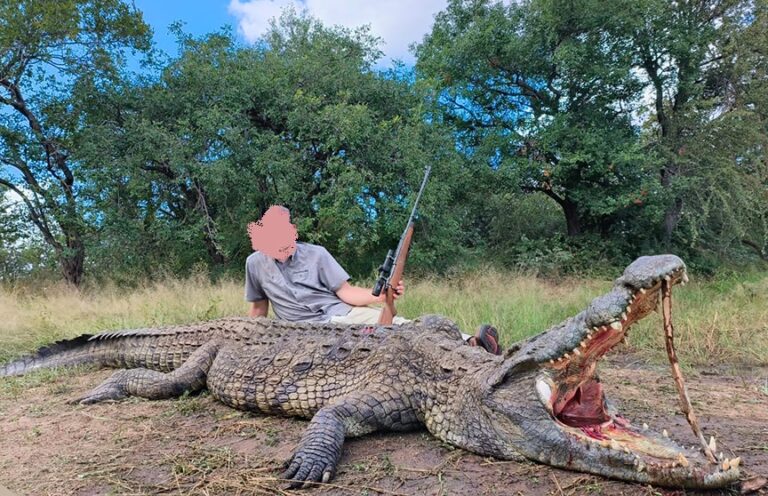
Impact On Conservation And Wildlife Management
Africa boasts unparalleled biodiversity, making it the premier destination for game hunters. The continent is home to iconic species like lions, leopards, and elephants, as well as lesser-known game like crocodiles or the elusive hyena. Big game hunting here doesn’t just offer personal satisfaction; it significantly contributes to funding habitat preservation efforts and boosting local economies.
When we choose African hunting safaris, we’re actively supporting conservation initiatives, provided we opt for ethical hunting practices. Many reserves and hunting operators prioritize sustainability, using proceeds from hunts to conserve species and their ecosystems.
Essentials For Planning an African Hunting Safari
Planning a successful hunting safari involves selecting the right location, timing your trip properly, and preparing necessary equipment. Here’s what you should focus on:
Choosing Your Destination
South Africa, Namibia, and Zimbabwe lead as popular destinations. While South Africa offers diverse terrains and game management expertise, Zimbabwe is known for Cape buffalo and crocodiles hunting. Namibia’s vast landscapes accommodate thrilling hunts for species like the majestic kudu. Understanding the regulations specific to each country ensures a seamless experience.
For instance, South Africa’s permits may differ significantly from Zambia when it comes to leopard hunting. Work with trusted operators, like African Hunting Safari Broker, to navigate these specifics.
Timing Your Safari
The dry season, typically June through October, ensures optimal conditions for spotting wildlife. Water sources become scarce, drawing game to predictable locations, making them easier to track. This period also supports better field visibility.
However, certain species have unique patterns. For example, Africa big game hunts for lions or leopards may depend on nocturnal behavior, requiring skilled guidance to increase your chances.
Required Gear
Packing the right gear is critical. Lightweight clothing suitable for the climate, durable hunting boots, and sun protection are non-negotiable. Reliable optics like binoculars ensure a clear view of distant game, while GPS devices or maps are indispensable in remote areas.
For rifle hunters, ensuring proper calibers for big game is crucial. For instance, during African cape buffalo hunts, most experts recommend .375 H&H or greater. We suggest consulting your safari operator to confirm equipment compatibility with local regulations.
Tips for Responsible Hunting
Ethical hunting ensures species preservation while respecting wildlife. Here’s how we can practice responsible methods:
- Target Selection: Prioritize older, non-breeding individuals. This approach minimizes ecological disruption.
- Tracking Assistance: Employ trained guides who understand local wildlife patterns and principles of ethical hunting.
- Post-Hunt Obligations: Contribute trophy fees toward conservation or community projects. Many reserves rely on these funds for maintenance and anti-poaching efforts.
For example, lion hunting in Africa indirectly funds ranger patrols that protect species from illegal poaching. Similarly, permits for hippo hunts often go toward preserving waterways critical for multiple species.
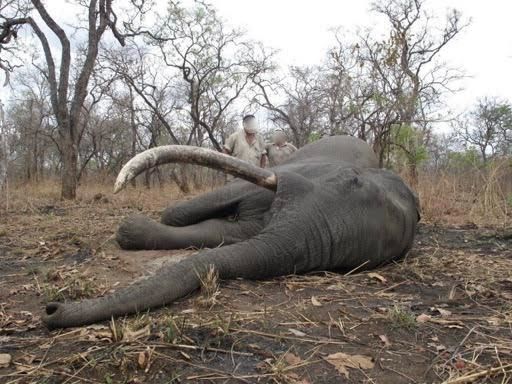
Benefits To Conservation and Local Communities
Aside from personal fulfillment, game hunting safaris hold far-reaching impacts:
- Conservation Funding: A significant percentage of hunt proceeds maintain species populations and protect habitats.
- Economic Growth: Hunting trips in Africa sustain jobs, from trackers to lodge staff, across rural communities.
- Human-Wildlife Coexistence: Revenue from big game hunting often funds initiatives that mitigate human-wildlife conflict, like installing fences or providing alternative livelihoods.
Making Your Booking
Partnering with reliable operators ensures ethical practices and seamless logistics. Trusted companies not only simplify permit arrangements but also provide expert guidance from pre-trip planning to mid-hunt assistance. Game Hunting Safaris is an ideal resource to explore tailored options, ensuring a memorable and impactful hunting experience.
Game hunting safaris are more than just adventures—they’re opportunities to experience wildlife up close, contribute to conservation efforts, and leave a lasting positive impact on local ecosystems and communities. Whether you’re a seasoned hunter or new to the experience, understanding the nuances of African big game hunting is essential for a safe, ethical, and memorable journey.
Public Opinion And Advocacy
African big game hunting encapsulates the pursuit of iconic animals like lions, leopards, rhinos, elephants, and Cape buffalo, also renowned as the “Big 5.” These species symbolize not only the ultimate challenge for hunters but also play vital roles in conservation programs. Ethical hunting practices maintain species population balance, support rural communities, and fund anti-poaching initiatives.
Importance Of Conservation Through Hunting
Big game hunting in Africa directly supports wildlife conservation. Fees and permits for hunts often fund habitat preservation and public wildlife reserves. Conservation-focused hunting also emphasizes choosing older animals past breeding age, ensuring population stability. For example, lion hunting in Africa often targets mature males to prevent disruption in prides.
Balancing Adventure With Sustainability
Selecting hunts based on sustainability and legality is vital. Working with an African hunting safari broker ensures compliance with local laws, wildlife ethics, and optimal planning. A well-organized safari balances thrilling hunts with initiatives that safeguard species and ecosystems.
Planning Your African Hunting Safari
Planning is key to maximizing your experience and impact. Every detail, from selecting a game type to timing your trip, contributes to a successful hunting safari.
Choosing Destinations
Some of Africa’s top hunting destinations include:
- South Africa: Known for highly regulated hunting practices and diverse game.
- Namibia: Offers regulated hunts for species like crocodiles and leopards, combining a conservation focus with professionalism.
- Zimbabwe: Renowned for Cape buffalo hunts and expansive hunting concessions.
Timing The Safari
The dry season (e.g., May–September for southern Africa) provides the best conditions. Wildlife gathers around water sources, increasing visibility and accessibility. Off-season hunts might offer different challenges, but they’re less predictable.
Selecting Game
Your chosen game impacts every aspect of the safari. For African cape buffalo hunts or hippo hunts, expect tactical, close-range tracking. For leopard hunting or hunts targeting other Big 5 species, patience, precision, and familiarity with terrain are key.
Essential Gear For A Safari
Preparation ensures safety and efficiency during the hunt. Must-have equipment includes:
- Firearms: Large-caliber rifles suited to game size (e.g., .375 H&H Magnum for Cape buffalo).
- Clothing: Neutral colors, durable fabrics, and lightweight layers designed for diverse climates.
- Optics: High-quality binoculars for identifying targets over long distances.
- First Aid Kit: Comprehensive supplies for emergencies.
- Sunscreen & Insect Repellent: Protect against harsh sun and mosquitos.
Well-chosen and tested gear prevents last-minute setbacks, allowing you to focus fully on the experience.
Tips For An Ethical And Responsible Safari
- Prioritize Conservation: Choose licensed operators that emphasize sustainable hunts.
- Follow Regulations: Stay within local laws to avoid penalties and disruptions.
- Target Older Animals: Enhance conservation by removing animals past prime breeding.
- Respect Local Communities: Engage with and support villages near your hunting area.
For comprehensive details and assistance, explore Game Hunting Safaris.
Game hunting safaris, when executed responsibly, evolve into remarkable journeys that blend adrenaline, wildlife appreciation, and impactful conservation.
Embarking on a game hunting safari is more than just a thrill; it’s a journey into nature’s raw beauty, where adventure meets conservation. These safaris not only offer the excitement of chasing Africa’s iconic wildlife but also contribute directly to preserving habitats and supporting local communities. Let’s dive into the essentials of planning, navigating, and enjoying an African hunting safari while making a meaningful impact.
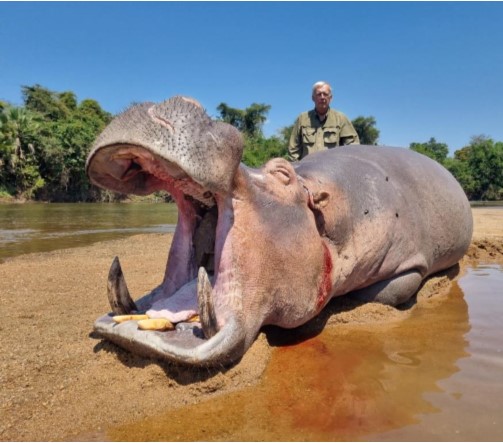
Conclusion
As the debate over trophy import bans continues to shape US politics, it’s clear this issue intertwines with conservation, ethics, and international collaboration. For those of us passionate about hunting and wildlife, staying informed and advocating for ethical practices is essential.
By embracing responsible hunting methods and supporting conservation-focused initiatives, we can ensure that game hunting safaris remain a force for good. Together, we have the power to balance adventure with meaningful contributions to wildlife preservation and local communities.
Frequently Asked Questions
What is a trophy import ban, and how does it affect hunters?
A trophy import ban restricts the import of hunting trophies, such as animal parts, into a country. For hunters, this can impact their ability to bring home trophies from international safaris and may influence where and how they plan hunting trips.
How does a trophy import ban impact wildlife conservation?
Trophy import bans can reduce funding generated from ethical hunting, which often supports conservation efforts like habitat preservation and anti-poaching initiatives. However, this topic remains highly debated among conservationists and policymakers.
How can hunters ensure their practices are ethical?
Hunters can adopt ethical practices by targeting older, non-breeding animals, working with reputable operators, and contributing to conservation programs. Responsible hunting supports sustainable tourism and wildlife population management.
What are the “Big 5” animals of African hunting safaris?
The “Big 5” refers to lions, leopards, rhinoceroses, elephants, and Cape buffalo. These animals are highly sought-after not only for hunting but also for wildlife viewing due to their iconic status.
How can African hunting safaris support local communities?
Hunting safaris provide funding for local communities by generating employment, supporting local businesses, and contributing to infrastructure development, such as schools and healthcare, through hunting fees and conservation funding.
What is the best time to plan an African hunting safari?
The dry season is ideal for African hunting safaris as wildlife gathers around water sources, making animals easier to spot and track. The exact timing varies by country but generally falls between May and October.
How do hunting safaris contribute to conservation?
Hunting safaris fund wildlife management programs, anti-poaching efforts, and habitat preservation. By working with ethical operators, hunters ensure their activities contribute to species protection rather than harm.
Which African countries are best for hunting safaris?
Top destinations for hunting safaris include South Africa, Namibia, and Zimbabwe, known for their diverse wildlife, solid infrastructure, and established conservation programs.
What gear is essential for an African hunting safari?
Essential gear includes appropriate firearms, weather-appropriate clothing, sturdy boots, optics like binoculars or scopes, and safety equipment. Consulting your safari operator will help ensure you pack everything you need.
How do trophy import bans impact international relations?
Trophy import bans can strain relations between countries by reducing hunting tourism revenue, which many conservation programs rely on, and influencing diplomacy on wildlife management policies.
Why is partnering with ethical safari operators important?
Ethical safari operators ensure compliance with local laws, prioritize animal welfare, and direct a portion of hunting fees toward conservation and community development—ensuring your trip positively impacts the environment and local populations.
Can hunting safaris help combat poaching?
Yes, ethical hunting safaris fund anti-poaching efforts by providing resources and on-ground staff to deter illegal hunting, along with offering financial incentives to communities for protecting wildlife.
How does hunting tourism align with sustainable wildlife management?
Sustainable hunting promotes species population control, removes older or weaker animals, and generates resources for preserving ecosystems, all while maintaining biodiversity and supporting local livelihoods.
What are some tips for a successful hunting safari?
Choose trusted operators, plan your trip during the dry season, bring the right gear, and educate yourself on local laws and conservation efforts. Always prioritize ethical hunting practices to enhance your experience and impact.
